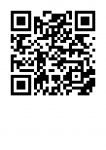In an era where technology is reshaping almost every aspect of our lives, mediation has found a new frontier: online dispute resolution (ODR). This innovative approach leverages digital platforms to facilitate conflict resolution, offering parties the opportunity to resolve their disputes remotely. As the world continues to embrace virtual solutions, ODR is proving to be a game-changer in the field of mediation.
The shift towards online mediation was accelerated by the global COVID-19 pandemic, which necessitated remote alternatives for various professional services. Courts, businesses, and individuals quickly recognized the potential of online platforms to keep mediation accessible despite physical restrictions. While initially seen as a temporary solution, ODR has grown into a permanent fixture in the mediation landscape. Platforms such as Zoom, Microsoft Teams, and specialized mediation software now allow parties to connect seamlessly from different locations. These tools enable mediators to facilitate discussions, share documents, and even conduct private caucuses in virtual breakout rooms.
One of the most significant advantages of ODR is its accessibility. By removing geographical barriers, it enables parties in different cities or countries to resolve disputes effectively. This feature is particularly valuable in cross-border conflicts or for individuals with mobility challenges. Additionally, ODR is often more cost-effective, eliminating travel expenses, venue rental fees, and other logistical costs, making it a more affordable option for many. The convenience of scheduling sessions that participants can join from their homes or offices also facilitates quicker resolutions. For disputes involving sensitive issues, the ability to discuss matters in a familiar environment rather than a formal office setting can offer a sense of safety and comfort.
The implications of ODR go beyond mere convenience. It represents a paradigm shift in how we approach conflict resolution, democratizing access to mediation for underrepresented communities. For individuals in rural or underserved areas, where access to a professional mediator might be limited, ODR can open doors to timely and effective dispute resolution. This newfound accessibility has the potential to reduce the backlog in courts and help alleviate the stress associated with prolonged legal battles. By streamlining the mediation process, ODR empowers participants to focus on reaching amicable solutions rather than becoming entangled in procedural complexities.
Despite its many benefits, ODR also presents unique challenges. Technical issues, such as poor internet connectivity or unfamiliarity with digital platforms can disrupt the process. Mediators must adapt their techniques to maintain engagement and ensure effective communication in a virtual setting. For example, they may need to use more explicit verbal affirmations or check-in frequently to gauge participants’ understanding and comfort levels. Confidentiality and security are paramount concerns, as mediators and participants must use secure platforms and adhere to best practices to protect sensitive information. Some critics argue that the lack of face-to-face interaction can hinder the emotional nuance and rapport-building that are critical to successful mediation, but skilled mediators are finding creative ways to mitigate these limitations by fostering connection and trust through thoughtful communication strategies.
As technology continues to evolve, so too will the capabilities of ODR. Artificial intelligence (AI) and machine learning are being explored as tools to enhance mediation. For example, AI could assist mediators by analyzing communication patterns or suggesting potential solutions based on historical data. Virtual reality (VR) might one day offer immersive environments for more dynamic and engaging sessions. Imagine participants sitting together in a virtual mediation room, experiencing a sense of presence and collaboration that rivals in-person meetings. These innovations hold great promise for enhancing the effectiveness and reach of ODR.
Moreover, the legal and regulatory framework surrounding ODR is likely to expand as best practices and standards are developed to ensure consistency, fairness, and accessibility. Policy makers and industry leaders will need to address questions about jurisdiction, enforcement of mediated agreements, and the ethical use of AI in mediation. By creating a robust framework, the field can ensure that the benefits of ODR are accessible to all without compromising on fairness or quality.
Online dispute resolution is not just a stopgap measure, but a transformative development in the field of mediation. By combining the principles of traditional mediation with the power of technology, ODR is making conflict resolution more accessible, efficient, and adaptable to the needs of a modern world. While challenges remain, the future of mediation is undoubtedly digital, opening up new possibilities for resolving disputes in ways that were unimaginable just a decade ago. As ODR becomes more widely adopted, it has the potential to bridge divides, save resources, and bring about resolutions that are as innovative as the technology enabling them.
The journey of ODR is only just beginning. As mediators, participants, and technology developers collaborate to refine and expand its capabilities, the potential for positive impact is limitless. Whether it’s resolving family disputes, facilitating business negotiations, or addressing international conflicts, ODR offers a versatile and forward-thinking approach to conflict resolution. In embracing this digital evolution, the mediation field is not just keeping pace with the times—it is shaping a future where access to justice and collaboration is more equitable and effective for all. n
Tamara Gestetner is a certified divorce mediator and psychotherapist located in Cedarhurst. She works with couples in need of mediation as well as couples in need of counseling. Tamara can be reached at tamaragestetner@gmail.com or 646-239-5686. For a free guide to dealing with the intricacies of divorce, please scan the attached QR code. To learn more about Tamara, please visit her website at www.tamaragestetner.com.















